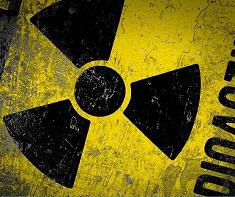Rise of Cancers and Birth Defects in Iraq: World Health Organization Refuses to Release Data

The back-breaking burden of cancers and birth defects continues to weigh heavily on the Iraqi people.
The joint WHO and Iraqi Ministry of Health Report on cancers and birth defect in Iraq was originally due to be released in November 2012. It has been delayed repeatedly and now has no release date whatsoever.
By March 2013, staff from the Iraqi Ministry of Health announced that this report will show an increase in cancers and birth defects due to the explosions of war. This was broadcasted repeatedly on the BBC.
Therefore we are baffled and alarmed at the WHO’s inability to release any of its findings, despite our urgent request of May 2013, for the WHO to release its report.
The Iraqi birth defects epidemic, by itself, would outrage anyone with the simplest understanding of population health and disease. Who could justify blocking the release of information from a long-completed investigation of that epidemic?
Why have our inquiries failed to break the WHO’s apparent filibuster against releasing that data? WHO has a staff of thousands, including medical doctors, public health specialists, scientists, and sophisticated epidemiologists. They are certainly capable of presenting that data to the public by now.
The need for a timely response to public health emergencies (such as the one unfolding in Iraq) is at the heart of all epidemiological studies. Delivering adequate and timely population relief should be the focal point of this WHO report — but where is the report? Where is the data which was clearly summarized (without numbers) on the BBC in March 2013?
We are now told that some new decisions were taken during a June 25th 2013 meeting http://www.emro.who.int/irq/
(1) “additional analyses not originally conceived”,
(2) “in addition to further analyses, it was determined the work should also undergo the scientific standard of peer review”.
(3) recruitment of a “team of independent scientists… to review the planned analyses”.
(4) “preparation for that meeting”,
(5) “a summary report of that meeting”
(6) “key findings from the analysis” to be released following steps 1-5 above.
To an untrained ear, these might sound like reasonable explanations. We are certainly not opposed to additional steps like analyses, peer review, etc.
Yet none of those steps should be interposed as excuses for further delay in releasing the data which is already known. If it was known in March 2013, when the BBC broadcasted the Iraqi Ministry’s comments on that data, then surely now that information can be released. Why is it still treated like a state secret?
However, large-scale epidemiological studies, such as the WHO report on Iraq birth defects, are expensive to fund. Hence, highly competitive proposals are elicited for such studies. It is a matter of routine practice to include a detailed study time-line in such proposals from the beginning — not at the end. The time-line routinely includes an estimation of time for data analysis and reanalysis, followed by publication of findings (i.e. peer-review). This normally means there is a clear and defined timeframe in which the data is expected to be published. The originally reported release date (November 2012) is now long gone. So yes, the continuing delay, augmented by fresh excuses for more delay, concerns us.
The past record of the WHO when dealing with related findings from the region are also a source of serious concern.
The British Medical Journal published an article entitled” WHO suppressed evidence on effects of depleted uranium, expert says” in November 2006. It suggested that earlier WHO reports were compromised by the omission of a full account of depleted uranium genotoxicity.
Additionally, recent revelations by Hans von Sponeck, the former Assistant Secretary General of the United Nations, suggest that WHO may be susceptible to pressure from its member states. Mr. von Sponeck has saidthat “The US government sought to prevent WHO from surveying areas in southern Iraq where depleted uranium had been used and caused serious health and environmental dangers.”
Given the urgent public health crisis in Iraq, we the undersigned encourage the WHO and the Iraqi Health Ministry to release all available data from their completed study on birth defects and cancers immediately.
The Iraqi people’s health will be further harmed if you continue to delay that release. Allowing the public to examine that data cannot possibly hamper the WHO’s own expanded analysis.
Original Article Listing Affiliations here

No comments:
Post a Comment